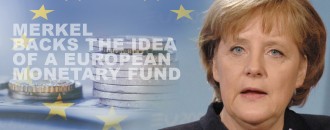
Leaving the EU would be the least pragmatic decision by May : Virendra Sharma, MP
By Sheela Mamidenna
The UK – on June 24th, 2016 – decided to test the depth of the water with both legs though a referendum. And the Brexit as expected is blowing things out of proportion. Ever since the Brexit, EU members have been huddling to strengthen the trade bloc And while Brexit talks are underway in Brussels, the latest test is on London’s might as the financial global empire! And this – the recent governmental news that leaked – has put Londoners on the edge. It revealed that London as a ‘financial powerhouse’ may not rest on its laurels for long as the freshly elected Emmanuel Macron-led France sought to usurp that position. Well, Global Financial Centres Index, a report by China Development Institute and Z/Yen Group pins London way ahead in the financial global hierarchy – beating New York, Singapore, Hong Kong and Tokyo – it is feared that the conidiation may not hold weight.
And in a time when the winds of change are causing distress an avid campaigner of ‘Remain in EU’, Virendra Sharma made it explicitly clear that Britain could stand to lose a lot more than the Theresa May government has envisaged. Sharma, a first-generation Indian to serve in the House of Commons of UK Parliament since 2007, hopes that Britain will still see the benefits of opting to stay within EU which otherwise will be potentially ruinous for the country. In an interview with The Dollar Business, Sharma throws light on Brexit and its impact on India, trade and immigration policies.
Virendra Sharma is the elected Labour MP from Ealing, Southall Constituency, who currently chairs the Indo-British All Party Parliamentary Group (APPG).
TDB: Brexit took place over a year ago, but the event is still fresh. What are the biggest pros and cons of the referendum?
Virendra Sharma (VS): I think the biggest advantage of Brexit for the UK economy would be the immediate cost saving of membership fee. Additionally, bilateral trade and investments with the rising economies opens new opportunities for establishing business in London/ rest of the UK and trade with the world, which also strengthens ties with the respective nations. Speaking of the disadvantages, Brexit will result in a sacrifice of immediate economic wellbeing of Britain’s poorest by channelling government funding to maintain EU funded projects post-Brexit such as the EU Common Agricultural policies subsidy for farmers now having to be footed by Westminster, resulting in less funding for important social projects like the NHS or housing (which are crucial for the UK and currently in great need of reform).
TDB: Frankly speaking, Theresa May’s government had a reel start. How do you think the Brexit negotiations will progress under her governance?
VS: Well, there have been huge concerns due to May’s weak control on the government (also leading to current general instability in the UK). I think the Brexit negotiations will be inevitably more complicated and her approach will put jobs, the economy and rights at huge risk. It has served to weaken our ties with EU – in addition, to alienate from our allies. Therefore, leaving the EU with no deal (which she has stated as her preference) would be the least pragmatic solution and needs to be ruled out.
TDB: Well, during the recent EU Summit, the Macron-Merkel juggernaut clearly articulates the message of unity – sending a warning to countries that wouldn’t play fair on trade. Do you see a no sum zero gain at play?
VS: I believe the best option for UK, within these circumstances, would be to play as fairly as possible. Exiting the EU shouldn’t result in harsh relations between ourselves and countries within EU, or a complete cutting of ties. Crashing out of the EU is not a result anyone wants, and not leaving would be far preferable.
TDB: At the same Summit, May’s stance on the EU nationals living in Britain reflects her thoughts on visa issues with India. What’s your thought?
VS: Well, May has been said to have made a “fair and serious offer” to EU leaders over the issue of the future rights of EU citizens. However, she has not yet explicitly stated her stance or future proposals on the Indian visa issue. I am aware that earlier this year, May insisted that leaving the EU would allow Britain to find other partners such as India. However, her refusal to reform visa restrictions could hinder such development. I can only hope that she will aim to have a fair, balanced and rational approach to this matter.
TDB: Would you agree that UK needs to strengthen its ties with Commonwealth Nations – especially India – at the backdrop of Brexit?
VS: Trade with India and the rest of the Commonwealth nations is already incredibly important for UK. And with Brexit, Britain’s future trade relationship with its fellow Commonwealth members will assume a greater significance. But, sadly, this will be matched by a greater degree of uncertainty as we leave EU. While we are a part of EU, Britain had a greatly influential and privileged position as a link between the EU trading bloc and the Commonwealth. We will lose this competitive advantage, and the instability leaving the EU creates will drive business and trade away. Well, India has been one of the five commonwealth countries representing the bulk of the 10% of UK’s GDP over the past decade. Therefore, the British government understands that preserving good trade relations with India is both important and necessary for both nations.
TDB: But at the same time, UK recently had allowed a bilateral investment treaty with India to lapse!
VS: I was disappointed to hear that the UK government permitted the recent bilateral investment deal with India to lapse. This situation has evidently highlighted the difficulty of Brexit Britain’s ties with the Commonwealth nations to promote international trade. However, I am convinced that May’s government is dedicated to retaining a close relationship with India, and will consider other bilateral agreements between Britain and India in the near future.
TDB: With that said, British High Commissioner Sir Dominic Anthony Gerard Asquith recently visited Andhra Pradesh and met Chief Minister Chandrababu Naidu. Would you like to share the engagements on this front?
VS: Sir Dominic has said that UK has always supported the concept of Amaravati as a Smart City even before it was declared as such by the Indian Government. The UK government has helped Andhra Pradesh financially such as the Andhra Pradesh Capital Region Development Authority in raising funds on the London Stock exchange through partnerships with British companies specialising in financial services. With regards to details on business ties and partnerships, more of our British firms are planning to partner with Andhra Pradesh for its sustainable development. And our council is actively engaging in fulfilling the Andhra Pradesh Chief Minister’s vision of transformation of the state.
TDB: And do you expect Philip Hammond’s visit to India to contribute in building a stronger India-UK relationship?
VS: Philip Hammond, when commenting on his visit to India, stated that the triggering of article 50 will open up a new chapter for the UK, a chapter built on stronger relationships with our traditional friends and allies, with India of course being one of them. Our bilateral relationship today is broad-based and strong, as we are major investors in each other’s economies. His visit included some of the UK’s most experienced leaders in financial services, in the hope of opening new opportunities to strengthen India-UK ties and helping the transformation of India. Therefore, with the UK and India as financial partners and developing innovative markets, the shared link of both nations will only become stronger.
TDB: Also, UK recently committed €500 million towards India’s renewable energy drive. How will the investment serve UK’s interests?
VS: The purpose of this investment was to financially support India’s rapidly-growing energy and renewable energy market. Investing in India’s clean/ green energy projects serve British interests as it clearly portrays UK commitment to India, and its dedication to maintaining a strong connection whilst developing a sustainable environment. And as India has now overtaken US and is renowned as the second most attractive renewable energy investment destination, it is also beneficial for Britain’s economy (especially post Brexit) to do so.
TDB: And finally, how does the government plan to mitigate a slump in investments caused due to prolonged uncertainty in the long-drawn process of Brexit?
VS: That will be very difficult. But a strong offer to EU and the commitment to remain in the customs union should go some way to steady the ship.





 to success.
to success.